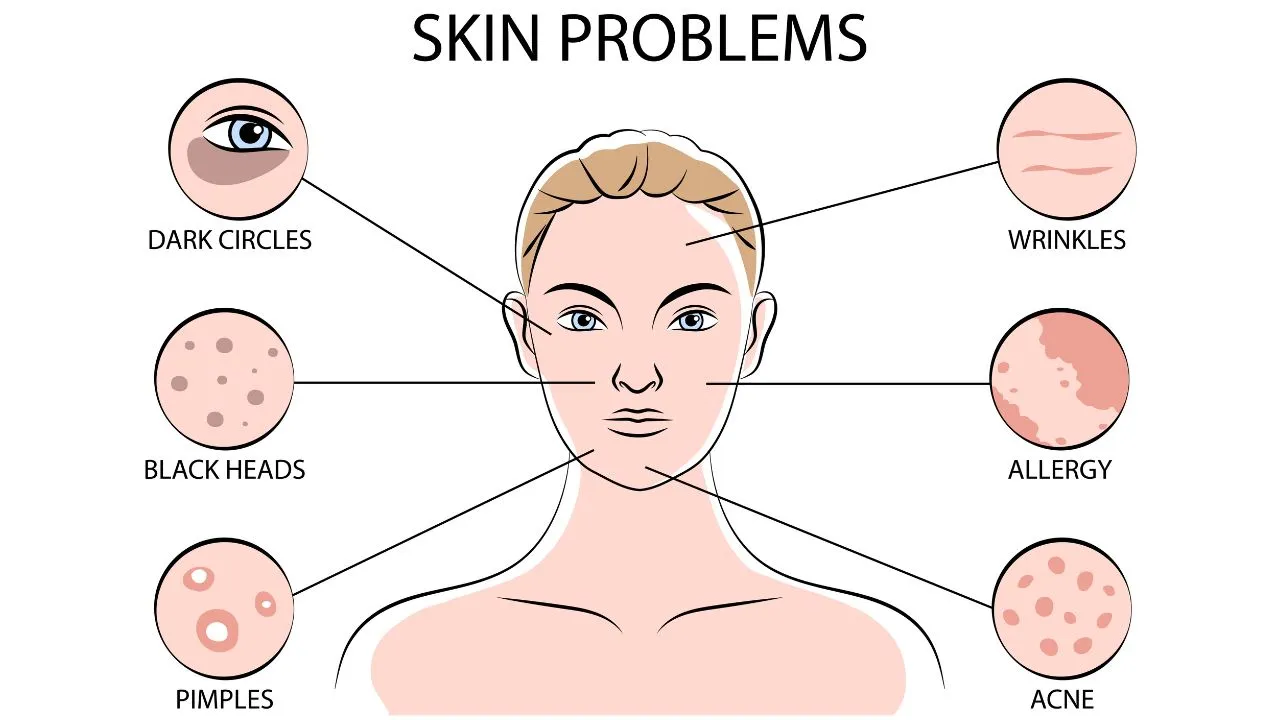Exploring the Function of Skin Specialists in Identifying and Treating Diverse Skin Conditions With Accuracy
The area of dermatology plays a crucial role in recognizing and taking care of a huge range of skin problem that individuals might run into. From typical issues like acne and eczema to a lot more complex disorders such as cancer malignancy or unusual genetic skin conditions, dermatologists are at the center of identifying and treating these problems with precision. With advancements in analysis devices and customized treatment strategies, skin specialists are progressively able to tailor treatments to individual people' requirements - Chromaderm Melbourne. Nevertheless, beyond the surface area of skin problem exist interconnected aspects that influence diagnosis and treatment end results. Recognizing the elaborate internet of hereditary, ecological, and way of life components that add to skin health and wellness is important for detailed care.
Significance of Very Early Detection
Early discovery of skin problem plays a crucial role in the reliable treatment and management by skin specialists. Prompt recognition of skin concerns permits for punctual treatment, which can avoid the development of problems and lessen possible difficulties. Skin doctors count on their expertise to recognize refined adjustments in the skin that might show underlying troubles, such as skin cancer, dermatitis, psoriasis, or dermatitis. By carrying out detailed exams and making use of analysis tools like biopsies or dermoscopy, dermatologists can precisely detect a variety of skin conditions.
Identifying skin cancer cells in its very early phases substantially boosts the diagnosis and increases the likelihood of successful treatment outcomes. Stressing the relevance of very early discovery emphasizes the essential duty that dermatologists play in promoting skin health and wellness and wellness.
Advanced Diagnostic Methods
Using state-of-the-art innovation and specialized expertise, dermatologists use advanced analysis techniques to accurately identify and examine various skin problems. By multiplying the skin, dermoscopy aids in the very early discovery of cancer malignancy, basal cell carcinoma, and various other skin cancers.
Moreover, molecular testing has changed the diagnosis and therapy of skin conditions by enabling skin specialists to assess hereditary mutations connected with problems such as cancer malignancy and hereditary dermatoses. Through strategies like polymerase chain reaction (PCR) and next-generation sequencing (NGS), skin doctors can provide individualized therapy strategies based upon an individual's specific genetic profile. These sophisticated diagnostic tools improve the precision and efficacy of dermatological care, eventually leading to better results for people.

Tailored Therapy Approaches
With a thorough understanding of skin problem attained via advanced diagnostic methods, skin doctors tailor treatment strategies to address individual patient needs successfully. This personalized technique is critical in ensuring optimal outcomes for clients with diverse skin disease. By considering factors such as skin type, medical history, lifestyle practices, and therapy choices, skin doctors can create therapy strategies that are especially customized to every person.
Tailored therapy strategies might include a combination of therapies such as explanation topical medications, oral medicines, minimally invasive procedures, or lifestyle alterations. Individuals with acne might benefit from a program that consists of topical retinoids, oral anti-biotics, and in-office procedures like chemical peels or laser treatment. On the other hand, individuals with eczema might need a treatment strategy concentrated on gentle skincare regimens, creams, topical corticosteroids, and identifying and avoiding triggers that aggravate their condition.

Managing Persistent Skin Problem
Skin doctors play a vital role in creating long-term administration strategies for persistent skin disease, ensuring efficient treatment and improved lifestyle for people - Chromaderm Melbourne. Managing persistent skin conditions needs a thorough method that surpasses simply dealing with symptoms. Skin specialists are trained to not only identify these problems properly but likewise to develop individualized treatment plans that attend to the underlying elements and causes adding to the skin problem's persistence
In handling chronic skin disease, skin doctors typically utilize a combination of treatment methods customized per patient's specific needs. This may include topical medications, dental drugs, way of living alterations, and step-by-step treatments such as laser therapy or phototherapy. Regular follow-up visits are vital to check the problem's progression, change treatment as needed, and provide continuous support and education to people.
In addition, skin doctors play an essential function in encouraging clients to take an active duty in handling their skin problem. By educating individuals regarding their condition, therapy alternatives, and precautionary steps, dermatologists aid individuals make educated decisions and cultivate healthy and balanced skin practices that add to long-lasting skin health and total health.
Collaborative Treatment Approaches
In the alternative monitoring of skin problem, collective treatment approaches involving various medical care experts are crucial for maximizing patient results. Skin specialists usually operate in multidisciplinary teams to supply extensive treatment that addresses the diverse needs of people with skin problem. By teaming up with health care medical professionals, allergists, plastic surgeons, and various other professionals, skin specialists can make certain that patients get incorporated and worked with care customized to their particular problem.
Joint care techniques likewise include patient education and learning and assistance. Dermatologists can function very closely with pharmacists, psychologists, and nurses to inform individuals regarding their skin problem, treatment options, and preventive measures. This interdisciplinary approach empowers patients to actively join their treatment and make educated decisions regarding their health.
Additionally, collaborative care permits an extra all natural analysis of individuals, considering not only the physical symptoms of their skin disease but additionally the social and emotional effect it may have. By considering the more comprehensive effects of skin problems, healthcare experts can establish more personalized therapy plans that address the one-of-a-kind requirements of each individual. Eventually, collaborative treatment techniques play an important role in supplying premium, patient-centered take care of individuals with varied skin disease.
Verdict
In final thought, dermatologists play a vital role in detecting and treating a vast array of skin disease with accuracy. Via early discovery and find out advanced diagnostic techniques, they have the ability to provide customized therapy methods for optimum outcomes. By handling persistent this post skin conditions and applying collaborative treatment strategies, skin specialists make certain comprehensive and efficient take care of their people. Their experience and dedication contribute substantially to the total health and wellness of people with diverse skin concerns.
Skin doctors rely on their proficiency to recognize subtle adjustments in the skin that might show underlying troubles, such as skin cancer cells, dermatitis, eczema, or psoriasis. By multiplying the skin, dermoscopy help in the very early discovery of cancer malignancy, basal cell cancer, and various other skin cancers.With an extensive understanding of skin conditions attained with innovative analysis methods, dermatologists customize therapy techniques to deal with individual person requires successfully. Skin doctors are educated to not only detect these conditions accurately yet additionally to produce individualized treatment strategies that deal with the underlying elements and reasons adding to the skin condition's persistence.
In handling chronic skin problems, dermatologists often utilize a mix of therapy techniques customized to each individual's specific requirements.